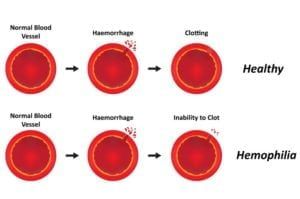Aspiration occurs when a foreign object, liquid or other material enters a child’s airway below the vocal cords. The body contains natural mechanisms that protect the airways from outside contaminants. When these mechanisms are stressed, such as while eating, talking or laughing, anyone can experience aspiration, though it is usually in small amounts of material that are rather inconsequential. However, some children have underlying conditions – specifically swallowing problems and gastroesophageal reflux (GERD) – that predispose them to a condition known as chronic aspiration.
Did you know…
that infants begin to develop swallowing reflexes by swallowing amniotic fluid before they are born? This and other developmental milestone progress throughout the first months of life, with rhythmic sucking and eventually the ability to swallow pureed foods from a spoon. When a child misses these developmental milestones, it may indicate a swallowing disorder that could put him or her at risk for chronic aspiration.
Frequently Asked Questions
How do I know if my child has chronic aspiration?
Children with chronic aspiration often present with chronic wheezing, nighttime coughing, or recurrent episodes of pneumonia. Your child is at risk of chronic aspiration if he or she has a swallowing disorder or GERD. Swallowing disorder is a condition in which a child experiences pain or is otherwise challenged by the swallowing process. GERD is a digestive reflux disease in which stomach acids and sometimes foods flow back into the esophagus.
Why is it important for a child to see a pulmonologist about chronic aspiration?
Chronic aspiration can be harmful to a child and lead to health complications. For example, acidic digestive liquids frequently inhaled by children with GERD may result in damage to lung tissues. Chronic aspiration can also lead to aspiration pneumonia, which develops when bacteria enters the lungs via inhaled foods, liquids or vomit. The amount of aspiration that is harmful to a child varies from person to person. However, when the condition is left untreated, it can lead to chronic or acute pulmonary disease.
What types of treatments are available for children with chronic aspiration?
Treatment for chronic aspiration often requires treating the source of the condition. For example, children with swallowing dysfunction may need to undergo occupational therapy or stop taking food by mouth. There are also various medications available to treat chronic aspiration related to GERD. For example, a child may be prescribed drugs designed to reduce stomach acid secretions and improve the tone of the esophageal sphincter. In most cases, children with chronic aspiration can be treated in an outpatient setting or at home. However, some kids will require oxygen and inpatient treatment of acute secondary complications.











































































































































































































































































































